The rabbit in a cell disturbs me. It looks lost and forlorn plus it makes me think of Donnie Darko.
The rabbit in a cell disturbs me… but not as much as the fox with the arrows up its backside.
I can honestly say that I’ve never walked the historic corriders of a castle quite like the one in Tarascon in Provence. It is one strange fish, as they say.
I’m partial to exploring ancient fortresses. Their empty, cavernous rooms whisper tales of bloodshed and bravery, conspiratorial plots and dangerous liaisons. Listen hard enough and you can hear echoes of the past.
Castles hold secrets.
Tarascon Castle is a grand example. It still looks impenetrable, towering above the Rhone to keep a watchful eye on its neighbour and rival, Beaucaire, across the river.
It was built in the early 15th century for the Counts of Provence, Louis II and then Louis III as a base for their military and political shenanigans around the Mediterranean.
Now, enjoying a completely different career change, Tarascon Castle is a venue for contemporary art exhibitions.
It is an extremely tall castle and as we cross the drawbridge and step through the portal, the high walls close in ominously above. Inside, the castle is maze-like. Staircases and floors overlap in a quasi Escher manner so that it’s difficult to keep my bearings. It has my internal compass whirling like the one favoured by Jack Sparrow. The design keeps me off balance.
An apothecary leads to a herb garden with a pond in the shape of a cross and a ‘Fountain of Fortune’ beside a lime tree. ‘Who drinks from this fountain will suffer great pain…’ proclaims the inscription, so we don’t.
From there on it’s ceremonial courtyards, banqueting halls and grand chambers galore. Initially it’s a typical castle exploration and we nod appreciatively at historical curiosities such as a ceiling decorated with mythical beasts; unicorns, sirens, dragons and centaurs. Or were they mythical, given local stories about what lurked in the river below?
But then someone slips us a red pill and everything changes. Maybe a drop from the evil fountain splashed on to our lips. We ascend a turret to a room where a naked salt woman lies in a boat… WHAT? The room is filled with loud whispers, words we can’t quite make out, that seem to be coming from the fireplace.
You know that bit in From Dusk Till Dawn where it switches from being a getaway movie to one about vampires?
The turret leads to the castle’s roof and a chance to breathe in fresh air and 360 degree panoramic views from the parapets. Maybe the naked salt women was a hallucination. Old buildings can play games with active imaginations.
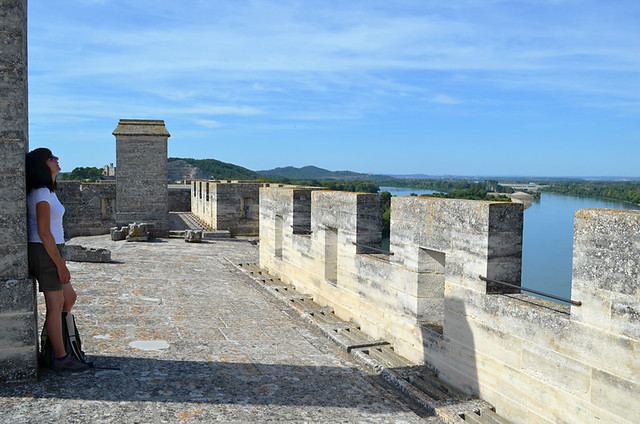
We cross the castle’s roof to a different turret and descend back into… madness possibly. It turns out the salt women has salty children who are far more creepier than her.
Each new room we enter throws up something ever more bizarre. A giant silver squid; flying brains with bat wings; more brains, this time on wheels and pouring over old books; swirls of barbed wire; the fox with the arrows up its bum and the sad little rabbit in a cell.
Tarascon Castle’s surreal imagery comes courtesy of the current exhibition. What’s etched into the wall behind the Donnie Darko rabbit, and that of many other walls, isn’t.
It’s graffiti. Graffiti from a quarter of a millennia ago. This part of the castle, around the first and ground floor, has been ‘vandalised’ by the prisoners who were incarcerated in the depths of this great fortress.
After the last Count of Provence, Charles du Maine, died the castle became the property of France and was subsequently turned into a prison, proving as adept at keeping people in as it was at keeping them out.
The castle’s personality changes again and surrealism is replaced by poignancy. We move without talking from room to room, wondrously touching at sometimes desperate messages from the past. Some of the graffiti is religious, some of it is like hieroglyphics. There are artistic depictions of ships, the work of captured Catalan sailors. At least one image was designed to help pass the endless time – a chess board scratched into the stone.
Their impact is powerful, sobering. The castle is no longer an empty monument to the past or an unusual setting for contemporary art. The ancient graffiti breathes real life into the bricks and mortar.
A lavish abode for kings and queens became a jailhouse for ordinary people.
That’s quite a thought.
Tarascon Castle is open daily between 9.30am and 6.30pm (times vary with seasons); entrance is €7 adults, €5 18-24, €3 12-17 and free for anyone youinger than 12.
Jack is co-owner, writer and photographer for BuzzTrips and the Real Tenerife series of travel websites as well as a contributor to lots of other places. Follow Jack on Google+

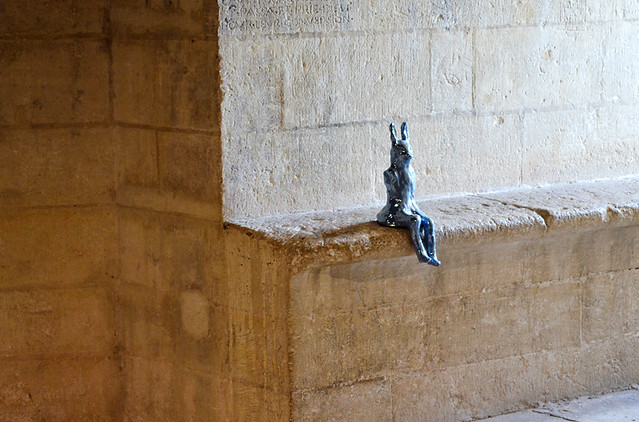
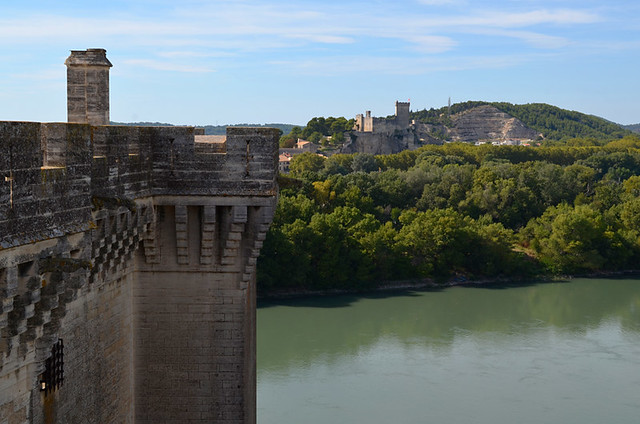
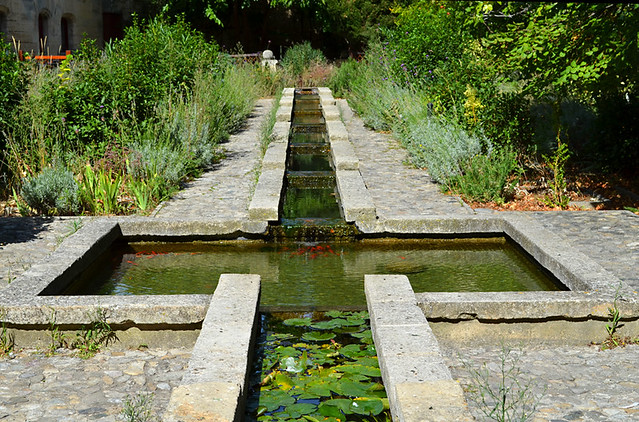
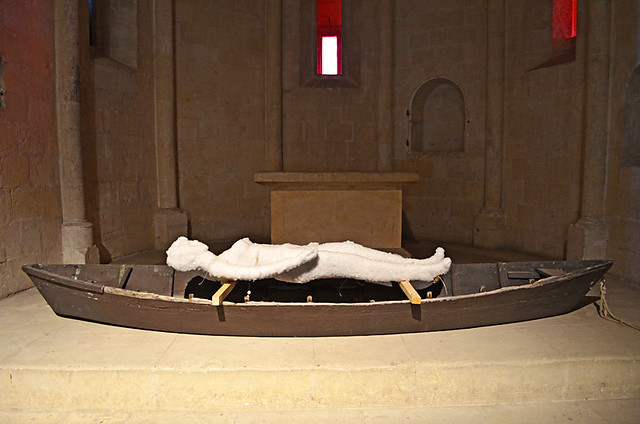
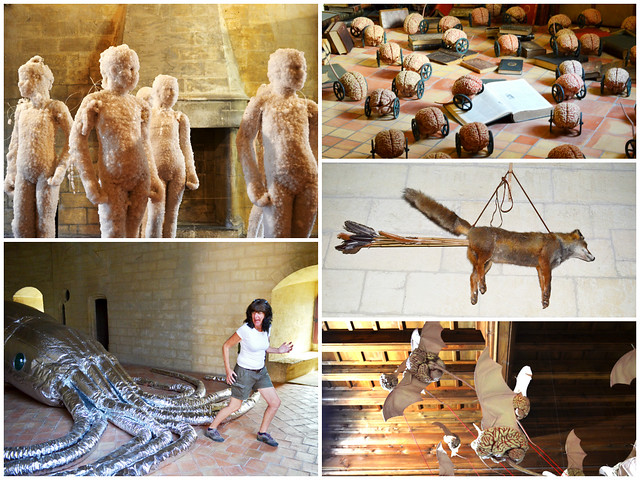
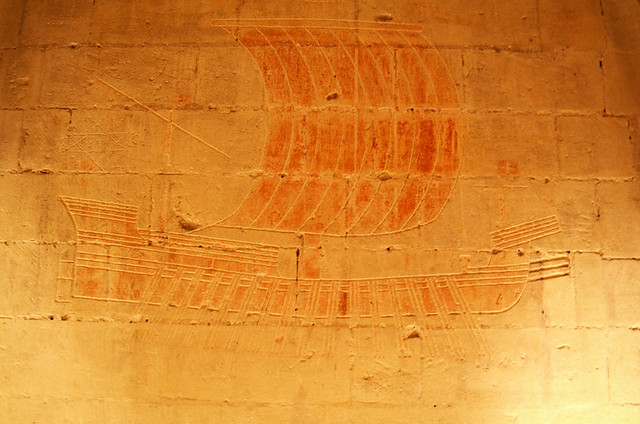
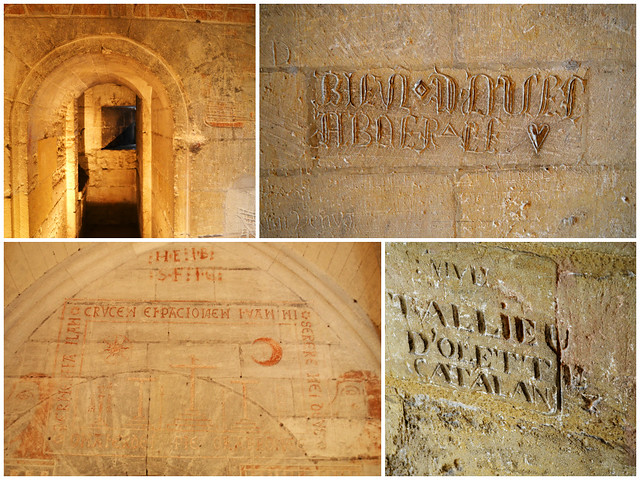



I’m from the states, and I’m wrapping up 3 weeks in the region. I noted the chateau as I passed through Tarascon on trips by train to Arles, etc. and pledged to visit. I did and it was the highlight of the trip. I spent an hour in ‘the Great Hall’ alone, on a warm day, carefully looking at, taking numerous photos and writing a handful in a spiral notebook. Here’s one:
Here is three Davids in one mess
Prisoners we are in distress
By the French we was caught
And to this prison we was brought
…..Taken in the Zephyr Sloop of War….
My photo doesn’t include the date. It was 1757, we know that from lists , merchant and naval, posted on wiki.
I could go on and on. The etchings by the Catalonian master left me speechless.
Phil Broaddus